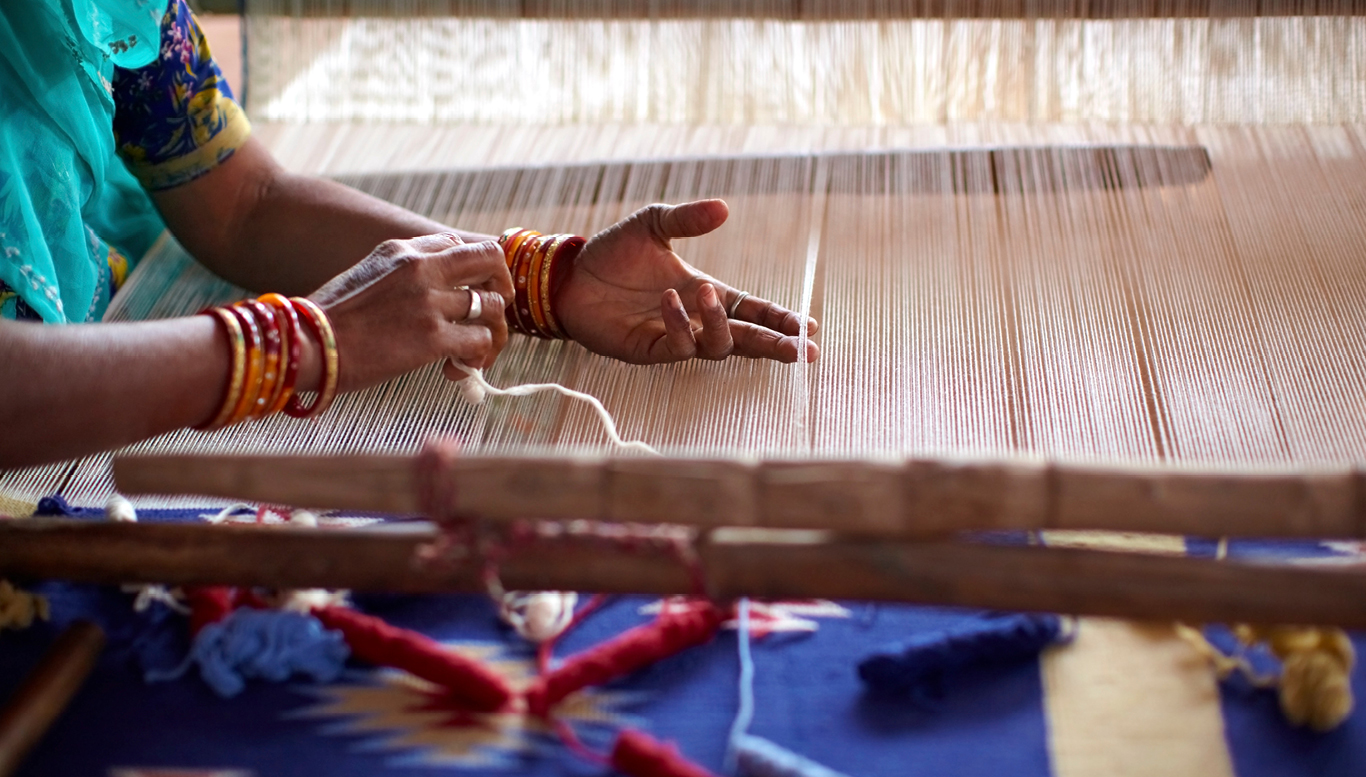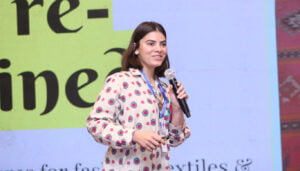Tikau’s orders provide employment opportunities in rural India

Tikau, a Finnish importer of handmade interior and personal accessories, extended its partner network in India with Finnpartnership’s support.
Taina Snellman was studying the working conditions of textile factory employees in India some 6 years ago. She encountered the all-too-familiar problem that is characteristic to many developing countries: poor rural population is forced to leave their villages to find employment in large cities.
“I started to think whether there were any alternatives and whether it would be possible to bring work to where people live instead,” she explains.
A handicraft enthusiast herself, she met Indian artisans and familiarised herself with the traditions of Indian textile industry. As a result, she came up with a business idea which would draw from the rich handicraft traditions and know-how of India: designing handmade interior and personal accessories in India and importing them to Finland.
The idea of establishing a company matured gradually. She found suitable artisans via various channels, and started the development of suitable products for the Finnish market.
“From the very start, I wanted to offer the artisans who live in rural villages the chance to work locally and sell their products according to fair-trade principles. This helps support and maintain the artisan traditions that have been handed down from one generation to another up to this day.”
Finnpartnership’s support helped establish the network
Snellman decided to call her company Tikau, which is a Hindi word that means ‘durable’ and ‘sustainable’. Launched in July 2008, Tikau’s collection includes rugs, blankets, baskets, bags, scarves and more.
“The basic principles of our product design include local production, focus on the artisan and combining Indian raw materials, craftsmanship and traditions with Nordic aesthetics.”
After launching her collection, Snellman learned that it might be possible to receive financial support from Finnpartnership for further development of the business.
“Finnpartnership’s support has been very important to a start-up like Tikau. It has helped us improve and speed up the process of identifying new villages and partners in different geographical areas.”
Starting point: sustainable development
Compared with traditional textile import enterprises, Tikau’s operating model is time-consuming and labour-intensive. According to Snellman, the operating model focuses on wide-ranging sustainable development.
“We do not intend to start mass production at any stage. Instead, we will continue selecting single families and women’s cooperatives as our partners. Within these selected groups, we will further focus on artisans who need work the most. We identify and select our partners on social basis.”
After partners have been selected, their individual skills are considered in more detail to determine how their products can be adapted for the Nordic markets. Environmental issues are very important when selecting each product, raw material and production method.
“In design and fashion, the fact that a product is environmentally friendly is inseparable from quality. The product must be durable, and natural materials are usually the most durable. Quality and environmental issues are a focal point in partner training, too. It’s worth remembering that quality can mean very different things to Indian and Scandinavian people.”
Looking for new partners
In rural India, connections are poor and the infrastructure often lacking, which poses additional challenges. It takes time to reach partners who are located in distant areas.
Tikau currently operates in 6 geographic areas in India. Word is slowly spreading, and Tikau has started receiving partnership inquiries from new artisans who are interested in cooperation.
“We are continuously looking for new partners in the areas where we currently operate. We are also working to increase the grass-root support, which is of benefit to the artisan communities, too. Support can come in many forms, such as making a donation to a local school or doing anti-malaria work in a village.”
According to Snellman, there is a lot of demand for Tikau’s products. The company has a shop in Punavuori in Helsinki and a Finnish reseller network which consists of mainly design shops. Tikau is currently entering the markets in Sweden and Denmark.
In addition to herself, Snellman employs 2 part-time employees in Finland. The Indian workforce consists of a country manager and area coordinators. Product manufacturing provides full-time employment for 40 to 50 people and part-time employment for over a 100 artisans in India.
“Because of domestic duties, part-time work is the best option for many women in India.”
» Tikau
Share on social media


